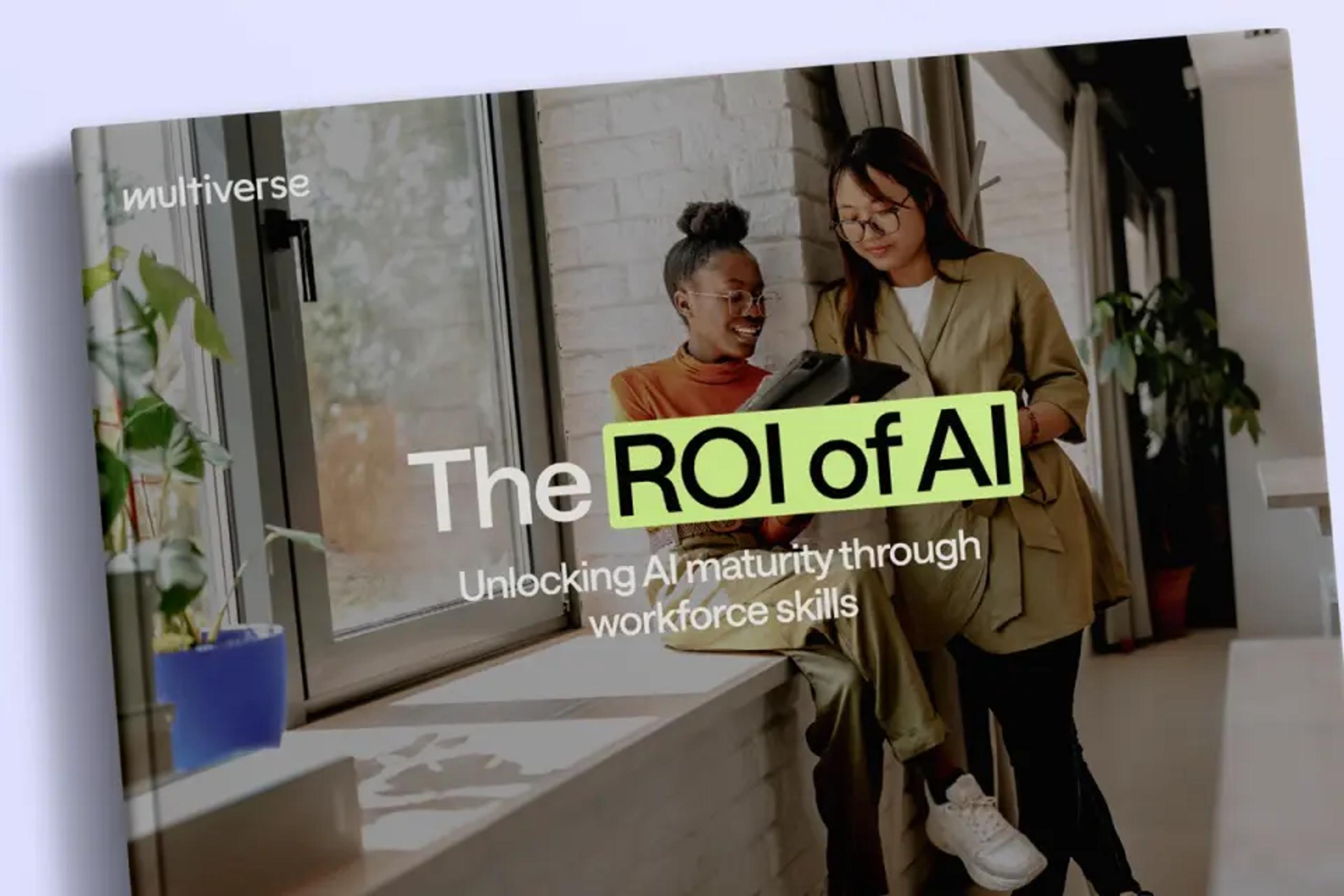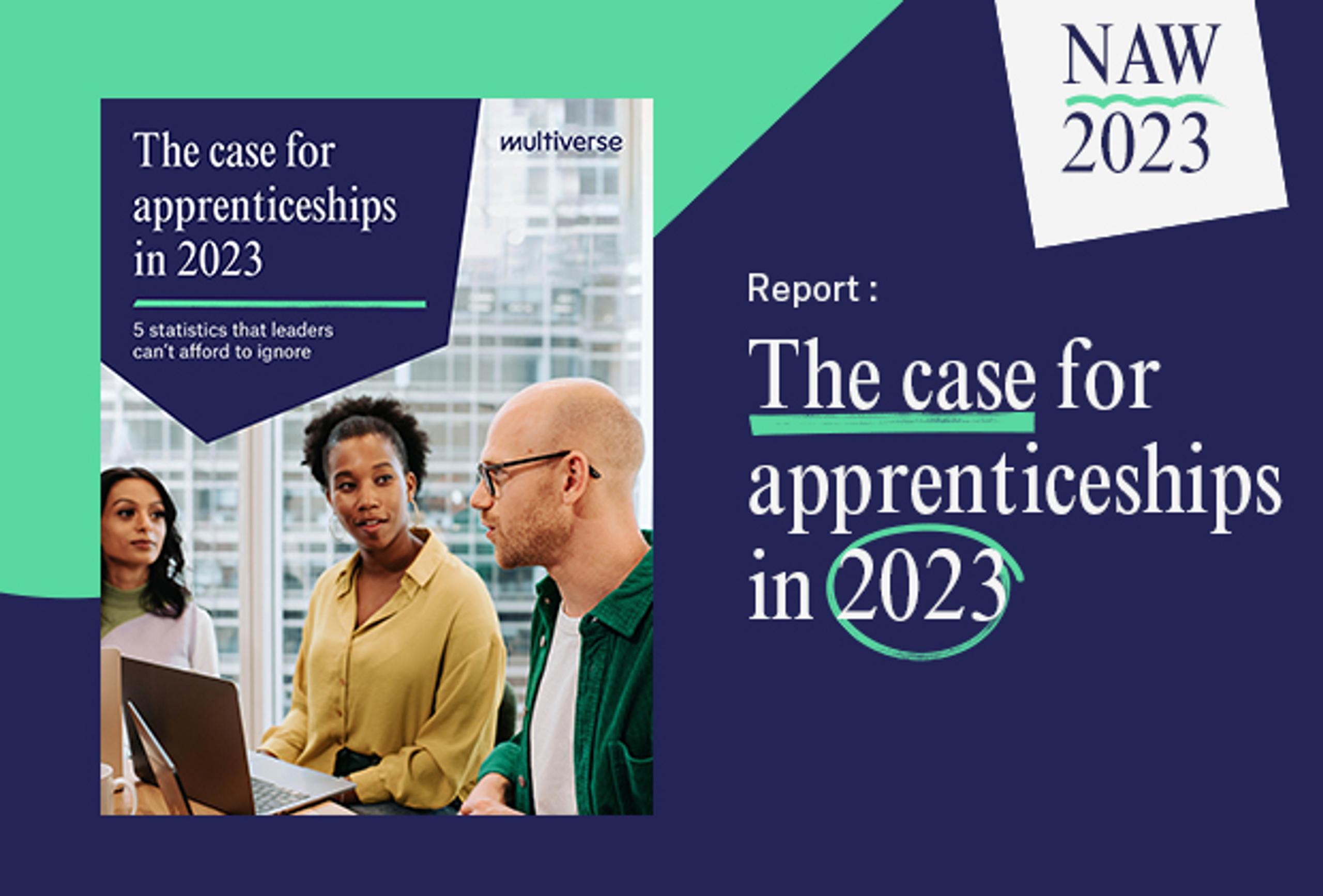People are four times more likely to back apprenticeships over university as the best preparation for the working world.
Much of that perceived value comes down to the skills apprentices develop — not just for the role they’re in today, but skills for a long and rewarding career.
During UK National Apprenticeship Week 2023, we’re exploring how apprenticeships can help individuals develop skills for life, and how businesses can proactively nurture skills across their workforce.
1. Offer applied learning opportunities in the flow of work
Despite the fact that 70% of large employers(opens new window) look for degrees when hiring, 72% of young graduates feel that the university route didn’t fully equip them to start their career.
Why? The same group listed “having a clear idea of what a job is like,” “real workforce training” and “quality time with industry professionals” as the top three elements missing from their education experience.
By providing a real-world context to new skills, applied learning can help to address these issues, close the work readiness gap and help employees hit the ground running.
Through an apprenticeship, employees don’t just get an opportunity to gain knowledge and skills — and then they’ll then immediately get the chance to practice and apply them in a real business environment, embedding them fully for the future.
2. Invest in upskilling and reskilling your current employees
It’s important to point out that applied learning through apprenticeships isn’t just limited to employees at the start of their careers.
Established professionals are ready and willing to advance and evolve their skills — today, 90% of workers(opens new window) feel they need to update their skills at least annually.
The benefits of investing in your existing team members extend beyond having a more skilled workforce. When employees feel valued, it builds the kind of connection and loyalty that increases employee engagement and retention. 93% of CEOs(opens new window) who introduce upskilling programmes observe an increase in productivity, improved ability to attract and retain talent, and a more resilient workforce.
Here are some direct ways to help employees develop skills for the future:
- Align your reskilling and upskilling strategies with your digital transformation goals
- Map developmental targets to internal skills gaps
- Outline a thoughtful selection strategy for enrolling employees
- Define clear metrics for tracking your progress
3. Commit to building a data-driven culture
No matter your industry, the ability to quickly convert data-driven insights into tangible business value is key to a healthy future. Yet our research shows that today, 26.5% of time businesses spend on data tasks is unproductive.
Data today has become so much more than numbers in a spreadsheet. Building true data literacy is about empowering employees to tell stories, build visuals, and make connectionswith data, uncovering practical insights that drive results.
Leading online food delivery marketplace Just Eat did exactly this, when they launched a data upskilling programme — enrolling 120+ employees to build data expertise across the business.
Today, 86% of Just Eat employee apprentices now use their new data skills in their daily work.
“Before starting, my experience with data was limited — but now, I have the ability to extract, analyse and interpret data myself, and use the language of data to ask the right questions,” says Delivery Performance Associate and Data Apprentice, Natasha Maynard.
The ability to organise and interpret data is a skill that apprentices like Natasha will be able to leverage throughout their career.
4. Adopt a skills-first hiring strategy
As the world of work evolves, it’s becoming clearer that traditional, university-led hiring routes aren’t the only way to attract top talent. By focusing on skills before degree requirements, you can instantly broaden your hiring pool.
Employers that have caught on to this idea early are taking a skills-first approach. As demand for talent continues to outpace supply, an increasing number of employers are reducing degree requirements(opens new window) for middle-skill and high-skill positions.
It’s an approach being spearheaded by some of the world’s leading enterprise organisations. Accenture, for example, now includes degree requirements on only 43%(opens new window) of their IT job postings, and IBM only 29%.
The following steps can help employers embrace a skills-first approach:
- Adopt hiring criteria that looks beyond simple academic success
- Audit job descriptions to consider which roles may not require degrees
- Consider investing in apprenticeships to build a pipeline of talent from a variety of diverse backgrounds
5. Pave a clear path forward for employees at all levels
By taking a skills-based approach to hiring and developing your talent, you can help employees build capabilities that carry them from the entry-level to management and beyond.
Here are some of the ways to increase equitable advancement opportunities for your employees:
- Give team members the opportunity to upskill or reskill into new roles
- Pinpoint the current gaps in your early talent to leadership pipeline
- Offer Leadership Accelerator Programmes to ensure you are uncovering high performers
- Create a mentorship program partnering employees with senior leaders, who can support them in developing skills for the future
- Encourage mentors to act as sponsors for promotions or merit increases
By extending a skill-first talent strategy to include a clear path for upward movement, you’ll be able to recognise and reward talent with greater clarity, upskill talented individuals to prepare them for deserved promotions, and build a diverse and inclusive workforce fit for the future.
Stay future-ready with Multiverse
Multiverse provides apprenticeships to young adults from a variety of diverse backgrounds, as well as upskilling and reskilling programmes for existing employees. We work with more than 500 businesses to help them embrace digital transformation, close critical skills gaps and develop stronger talent pipelines.
Learn more about our programmes or get in touch with us today to find out how we can help empower your workforce with future-ready skills.
Talk to us
Reach out today to learn more about the power of professional apprenticeships.







